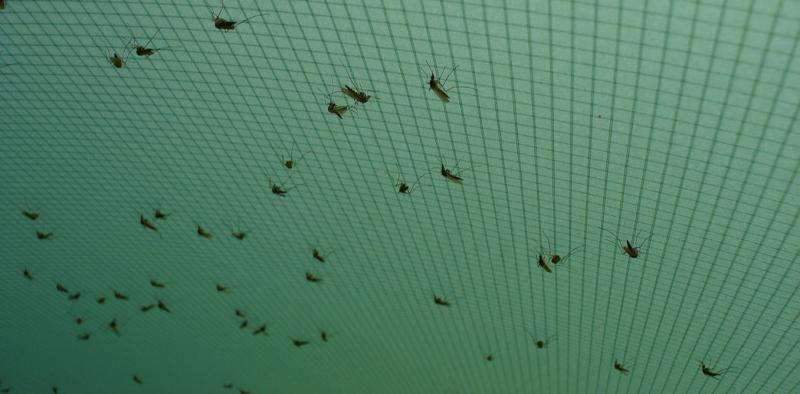Mosquitos are evolving to beat insecticides – except in Australia

Chemical pesticides have been used for many years to control insect populations and remain the most important method of managing diseases carried by pests, including mosquitoes. However, insects have fought back by evolving resistance to many pesticides. There are now thousands of instances of evolved resistance, which make some chemical classes completely ineffective.
The Aedes mosquito, largely responsible for the spread of viruses like dengue and Zika, has globally developed resistance to commonly used chemicals, including pyrethroids. Pyrethroids are the most used insecticides in the world, which includes the control of dengue outbreaks and quarantine breaches at air and sea ports.
In Asia and the Americas, pyrethroid resistance in Aedes mosquitoes is now widespread. In Australia, our mosquitoes have not developed these defences and pyrethroids are still very effective.
The difference lies in our stringent and careful protocols for chemical use. As the global community fights zika and other mosquito-borne diseases, there are lessons to be learned from Australia's success.
Developing resistance
Mosquitoes usually become resistant to pyrethroids through the mutation of a sodium channel gene that controls the movement of ions across cell membranes. Mutations in a single gene are enough to make mosquitoes almost completely resistant to the level of pyrethroids used in insecticides.
The mutations first arises in a population by chance, and are rare. However, they rapidly spread as resistant females breed. The more times a mosquito population is exposed to the same chemical, the more the natural selection process favours their impervious offspring.
Eventually, when many individuals in a population carry the resistance mutation, the chemical becomes ineffective. This can happen where insecticide "fogging" is common practice. Overseas, fogging is sometimes undertaken across entire neighbourhoods, several times a month, despite concerns about its effectiveness as well as its environmental and health impacts.
Once resistance develops, it can spread to non-resistant mosquito populations in other areas. Pest species, including mosquitoes, are often highly mobile because they fly or are carried passively (in vehicles, ships and planes) at any stage of their life cycle. Their mobility means mutations spread quickly, crossing borders and possibly seas.
We can still control Australian mosquitoes
Despite this, Australian populations of Aedes mosquitoes remain susceptible to pyrethroids. Aedes aegypti (the yellow fever mosquito) is the main disease-carrying mosquito in Australia. Its population is restricted to urban areas of northern Queensland, where dengue can occur.
Recent research found that all Australian populations of this species are still vulnerable to pyrethroids. None of the hundreds of mosquitoes tested had any mutations in the sodium channel gene, despite the high incidence of such mutations in mosquito populations of South-East Asia.
We believe these mosquitoes remain vulnerable to pyrethroids because in Australia pressure to select for resistance has been low.
Australia does not carry out routine fogging. If dengue is detected in an area, pyrethoids are used in highly regimented and limited fashion. Spraying is restricted to the insides of premises within selected house blocks, and then only for a short period.
Importantly, water-filled artificial containers, which can serve as a habitat for larvae, are treated with insect growth regulators, which do not select for the pyrethroid resistance mutations.
Exporting resistance
With chemical resistance growing around the world, it is more urgent than ever that we co-ordinate action to control and reduce risk of resistance. Unfortunately, no global guidelines exist to minimise the evolution of resistance in mosquitoes.
Adopting pesticide resistance management strategies has proven to be effective against other pests – for example, the corn earworm (Helicoverpa armigera). Guidelines include rotating different class of pesticides to deny pests the chance to develop resistance, and investing in non-chemical options such as natural predators of target pests.
Resistance management strategies are particularly critical for new pesticides that have different modes of attack, such as preventing juvenile insects from moulting, or attacking various chemical receptors.
To prolong the effectiveness of pesticides, we must develop these strategies before resistance begins to develop. North Queensland may be an example to the rest of the world on the best path forward.
This article was originally published on The Conversation. Read the original article.![]()
















